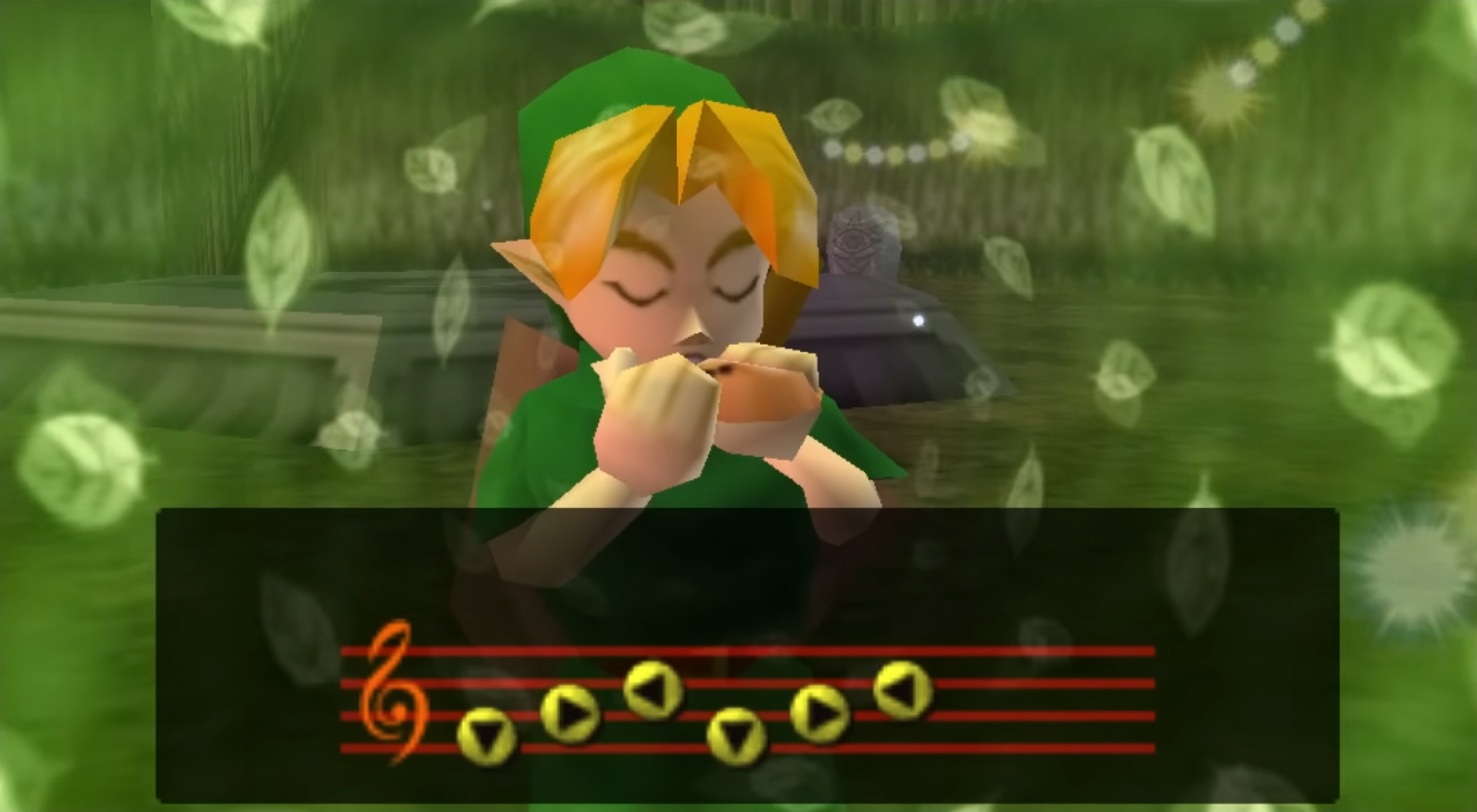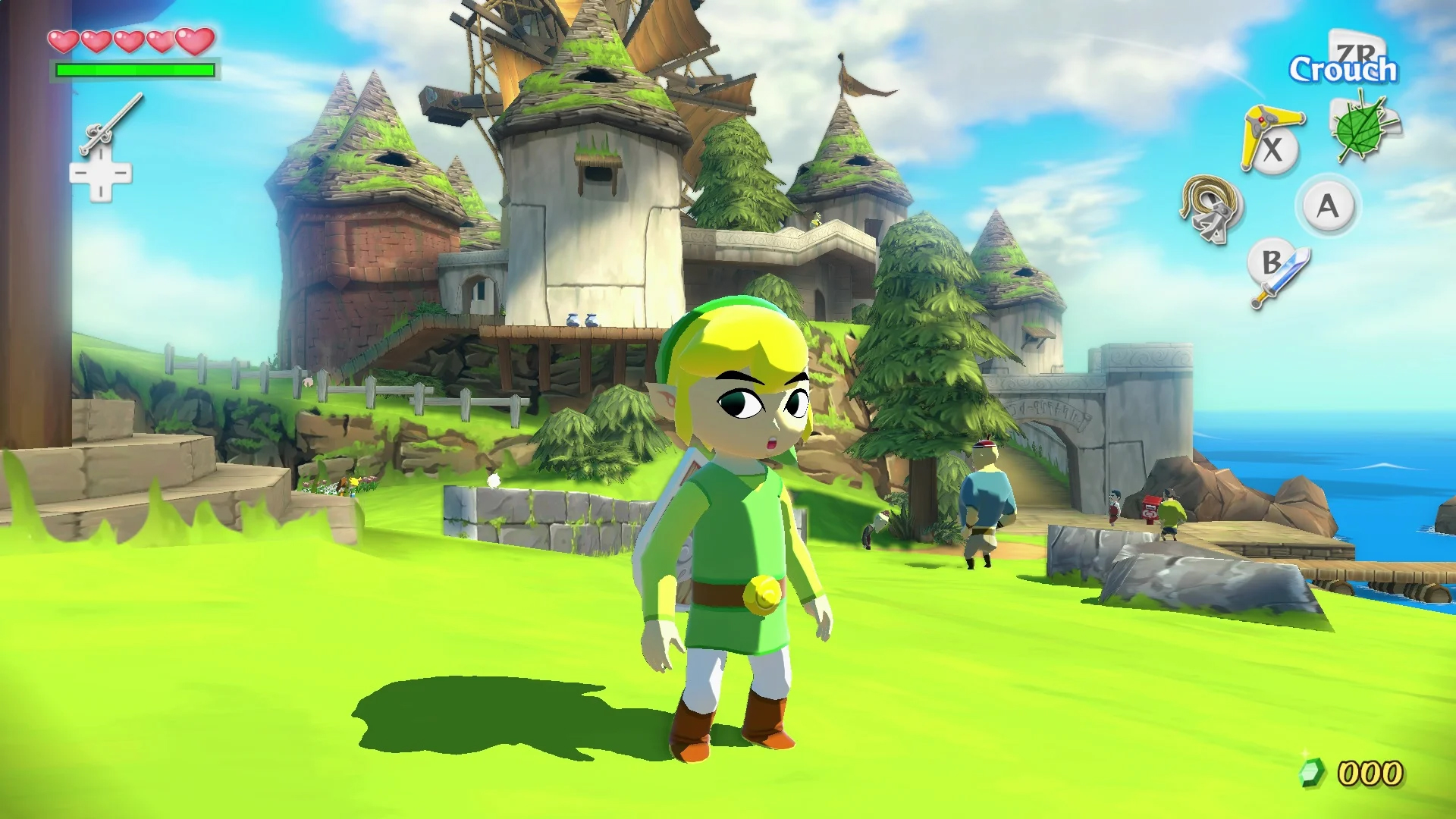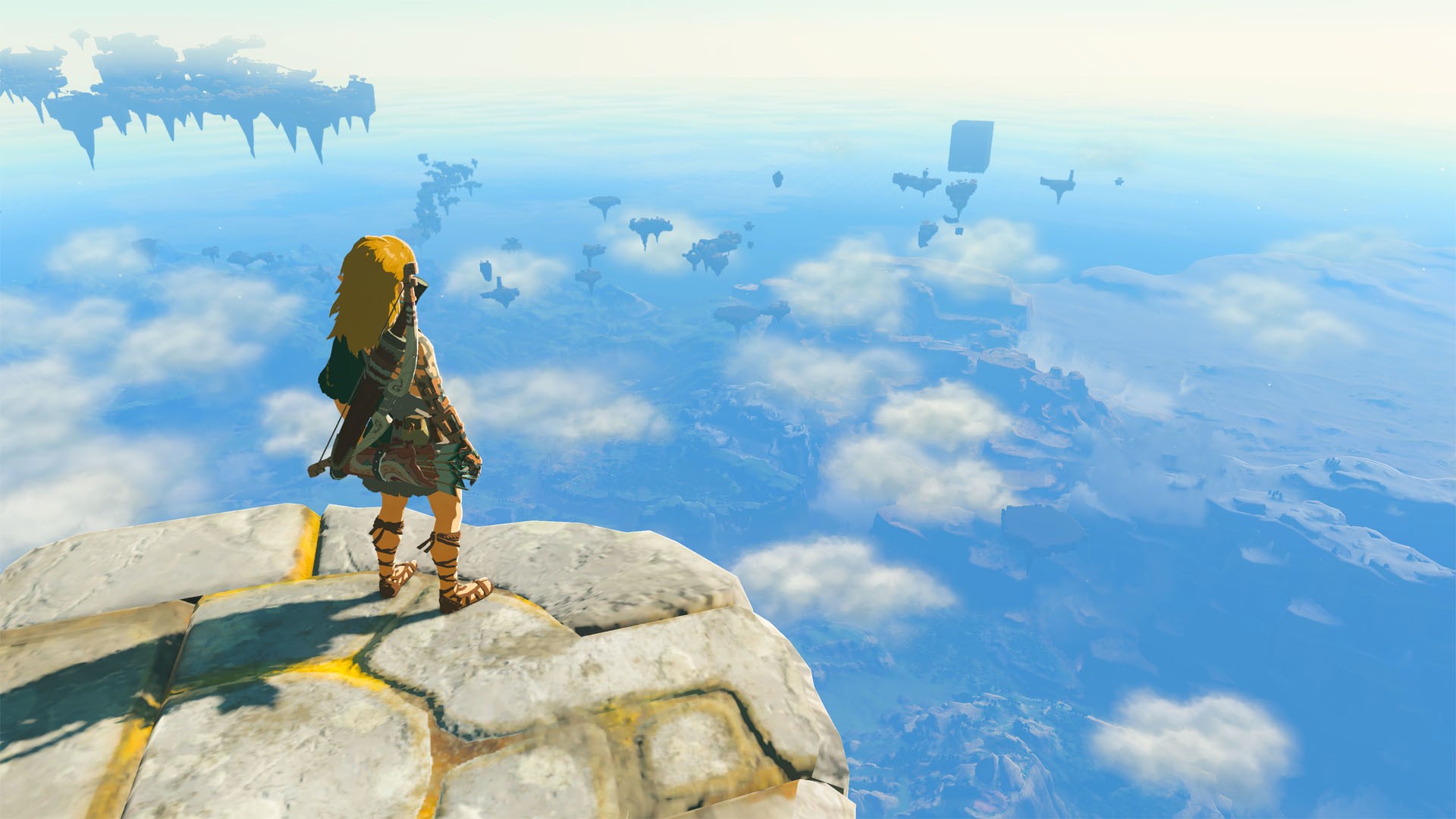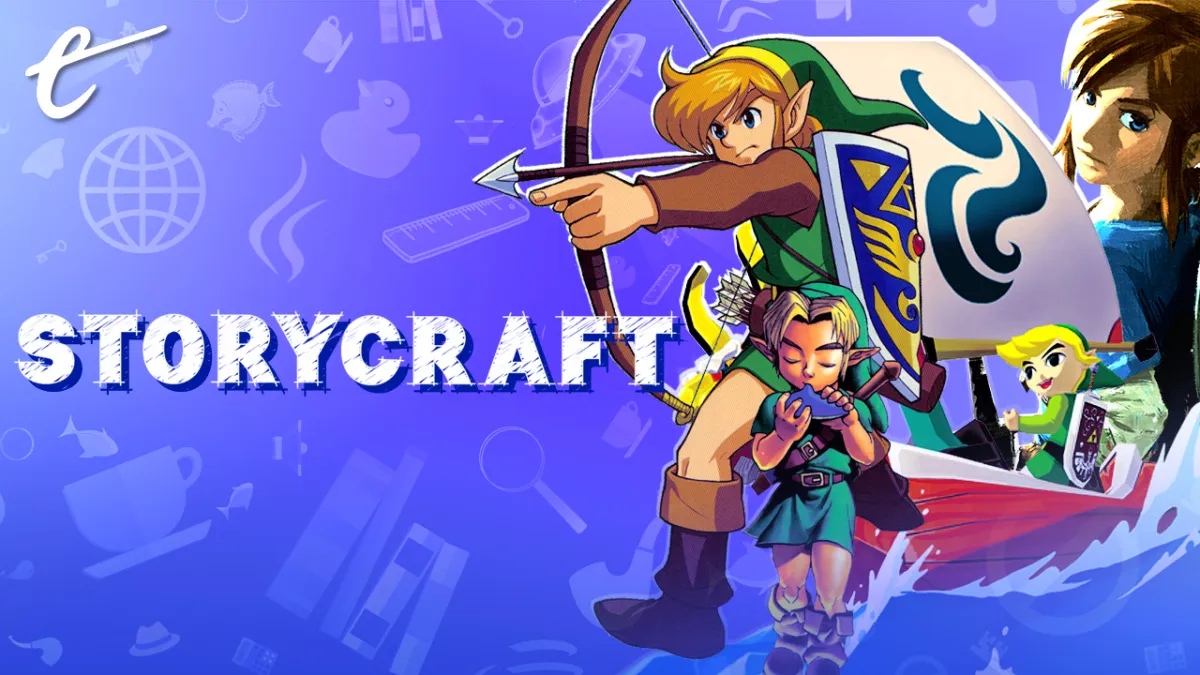A boy. A girl. An outsider.
A warrior. A princess. A sorcerer.
Courage. Wisdom. Power.
Earth. Water. Fire.
Since The Legend of Zelda was released for the Famicom Disk System in 1986, nearly every game in the series has involved these elements. You’d think a series that relies so heavily on remixing and repeating its core elements would get stale, but every new Zelda is a major event, a defining title for its console.
Why are we so captivated by a series whose fundamentals barely change across 40 years? Nearly every Zelda follows a similar structure and gameplay loop: travel to a dungeon, find an item, use the item to progress in the dungeon and defeat the boss, repeat. The mechanical differences between games are subtle and often revolve around a pivotal adjustment to the formula, e.g., turning into a 2D painting, controlling the wind, or shifting between two different time periods.
The significant changes are visual. The Legend of Zelda on the NES is primitive but colorful and easy to read. Its sequel, Zelda II: The Adventure of Link, flips the perspective from top-down to a sidescroller. The series returned to top-down with A Link to the Past on the SNES and a handful of Game Boy games. The next major installment, Ocarina of Time, featured the most dramatic shift yet: the jump to full 3D.

Lots of franchises jumped to 3D in the ‘90s and never looked back, but Zelda would continue to mess around in 2D up to the Link’s Awakening remake on Nintendo Switch, a beloved and super weird title that had been trapped on the Game Boy.
If you’re reading an article on Zelda, you smiled somewhere in those paragraphs. Or you’re disappointed I didn’t mention your favorite — but I bet you have a favorite. It’s like having a favorite food or Ninja Turtle, something that was declared when you were younger that you’ve carried around as a fact your whole life.
I’ll also bet that your favorite Zelda is the first you played for any length of time. I was a PC kid. I played A Link to the Past and Ocarina of Time at friends’ houses for a few minutes here and there, but Zelda is different from Mario Kart or Halo. It takes time to get its hooks in, but once it does, it sticks with you for life.
The Zelda that I first played on my own, the one that got its hooks into me, was The Wind Waker.
I can’t pin down what I love about Wind Waker like I can’t pin down what I love about my childhood bedroom. It’s ethereal, beyond fact. I can show you the expressive characters, the lighting, the music that plays when the sun rises on the open ocean, and hope you appreciate it the way I do, but there’s so much of it I can’t show you. I can’t show you why Wind Waker makes me feel safe or why I still find it exciting even though I’ve been playing it consistently for 20 years.
It’s not just nostalgia. Everyone has a video game golden age, usually in your teens and early twenties when you have a little disposable income and a lot of free time, and Wind Waker came out right in the middle of mine. But so did Star Wars: Knights of the Old Republic, Halo, Splinter Cell, and Psychonauts. I love all those games. They’re some of the best games ever made, but they’re not Wind Waker.

Wind Waker nails the feeling of adventure, and a big part of this is because you’re playing a younger character. The Link that appears in Wind Waker has “come of age” at the beginning of the story, which suggests he’s about 12, but his design skews much younger; I always think of him as 9 or 10. His excitement, his curiosity, and his courage are infectious. What was the last game you played with a main character who was flat-out stoked to be going on an adventure? It’s rare.
At the time, there was a lot of backlash against Wind Waker‘s cartoon look and focus on a young Link. After Ocarina of Time, and a famous E3 video that showed an adult Link squaring off against Ganon with GameCube graphics, fans expected Zelda to grow up with them.
But Zelda doesn’t age. It evolves, and that evolution is as non-linear as its famously convoluted (and irrelevant) timeline. It’s a perfect way to approach a game that is as close to a storybook as video games get. Each Zelda has big changes but also many things that stay the same. Bedtime stories don’t change. The details change, but the fundamentals remain the same — nostalgia as design.
That storybook quality, high stakes but low seriousness, is what I go to Zelda for. The calls for a “darker, more mature” Zelda never made sense to me in a world stuffed with “dark, mature” action adventure games, some of which, like Darksiders, gleefully riff on the Zelda formula.
Someone has probably made a “what your favorite Zelda says about you” quiz. Each one has its vibe, sense of humor, and personality. There are repeated elements, but each has its flavor, like how every comic book artist’s interpretation of Batman is unique to them within the classic silhouette.

Does my love of Zelda‘s more boyish tone stem from Wind Waker being my first experience with the series? Maybe, but it’s always felt right to me. Wind Waker has some bleak stuff: The gods created the overworld ocean when they drowned the world to stop Ganon. That’s pretty dark! Something about exploring this world as a kid who never loses his sense of joy and wonder, despite the post-apocalyptic setting and the massive responsibility on his shoulders, is very compelling.
Does Wind Waker inform what I value in stories now? Look at the contemporaries mentioned above: Knights of the Old Republic has a grand sense of adventure and colorful characters, Splinter Cell manages to poke fun at itself despite its political technothriller ambitions, Halo is bursting with personality from chatty Marines to cowardly Grunts, and Psychonauts is about a young boy stoked to be going on an adventure! One of my favorite games of the last few years, Star Wars Jedi: Fallen Order, is high-stakes and high-drama but still finds moments of levity and wonder.
The key to Zelda‘s ability to redefine itself is never better explained than by Wind Waker‘s very first line: “This is but one of the legends of which the people speak…”
The Legend of Zelda isn’t about history, lore, or complex politics. It’s about whatever it needs to be about, whatever story the creators want to tell at that moment. It’s a bedtime story about an adventure, and every adventure needs a hero. Who better than a young boy dressed in green?





